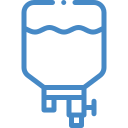
As an EU citizen, you can expect:
1. TO RECEIVE HEALTHCARE WHEN VISITING ANOTHER EU COUNTRY
If you fall ill unexpectedly during a trip to another EU country and need to visit a doctor, there’s no need to cut short your visit to return home for treatment. Take your European Health Insurance Card with you to a local doctor.
2. TO BE REIMBURSED FOR HEALTHCARE SOUGHT IN ANOTHER EU COUNTRY
Should you decide to receive medical treatment in another EU country you can be reimbursed for it at home, under certain circumstances, and normally up to the amount you would be reimbursed in your home country for the same treatment. In some cases, your home country may require you to seek prior authorisation before travelling for treatment.
3. TO RECEIVE INFORMATION ON SAFETY AND QUALITY STANDARDS IN EU COUNTRIES
A national contact point in each Member State shall provide information to patients on their rights to healthcare across Europe. Access to information on the quality and safety of care will allow you to make informed decisions. These contact points can also provide information on the European Reference Networks where you can receive highly specialized healthcare in the case of complex, low prevalence or rare conditions.
4. TO BE TREATED BY QUALIFIED HEALTHCARE PROFESSIONALS
Patients have the guarantee that whether receiving medical care in their home country or another EU country, they will be treated by healthcare professionals – be they doctors, dentists, nurses, midwives or pharmacists, who have met EU-wide minimum requirements. Patients will, upon request, receive information about a healthcare provider’s right to practice.


5. TO GET A COPY OF YOUR MEDICAL RECORDS
When you are treated, your healthcare provider must make a medical record of the treatment provided. As a patient you have the right to a copy of this medical record in order to secure continuity of care and be treated by a doctor of your choice, also if you continue treatment in another Member State.
6. TO HAVE YOUR PRESCRIPTION RECOGNIZED IN ALL EU COUNTRIES
The Commission has set rules on mutual recognition of prescriptions between Member States and on a minimum list of elements to be included in a cross border medical prescription. As a patient, when travelling to another EU country it is reassuring to know that your prescription can be recognized at your destination. To avoid delays, interruptions in treatment and extra costs, ask your health professional for a cross border prescription before you leave.
7. TO BE TREATED WITH SAFE AND EFFECTIVE MEDICINES
Medicines must be authorized by the Member States or the European Commission before they can be placed on the EU market. This ensures patients are treated with medicines that are in compliance with strict standards on quality, safety and efficacy. Once a medicinal product has been authorized in the Union and placed on the market, its safety is monitored during its entire lifespan to ensure that, in case of adverse reactions, appropriate action is taken swiftly, including additional warnings, restrictions of use or even withdrawal of the product.
8. TO BE ABLE TO REPORT SUSPECTED SIDE EFFECTS OF MEDICINES
As a patient, you have the right to report any adverse reactions to medicines you are taking directly to your national authorities. You can also do so through your doctor, pharmacist, nurse or other healthcare professional. Medicines for which additional monitoring is considered necessary have a black inverted triangle in the package leaflet, along with information on how to report suspected adverse events through the national reporting system.


9. TO BE TREATED WITH SAFE MEDICAL DEVICES
EU rules on medical devices, varying from simple bandages to the most sophisticated life-support machines, aim to ensure a high level of patient safety and rapid access to innovative technologies.
10. TO BENEFIT FROM COMMON HIGH STANDARDS OF QUALITY FOR BLOOD, ORGANS, TISSUES AND CELLS
To guarantee quality and patient safety, the EU has developed common rules that apply across the EU to ensure that all donated human material is safe and carefully screened to prevent transmission of disease, for example HIV or hepatitis. In addition, the EU funds projects and actions that support national authorities and healthcare professionals e.g., in training inspectors or improving vigilance systems as well as with the organization of and access to national transfusion and transplantation services.

